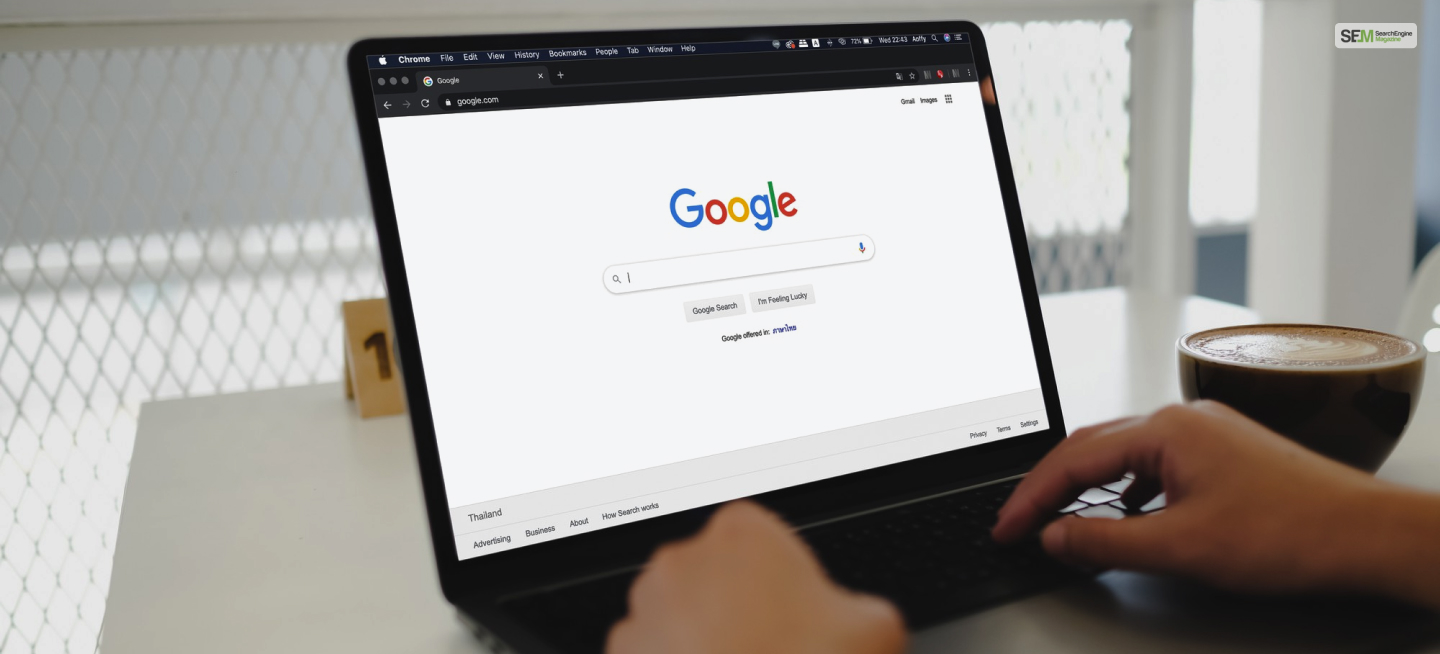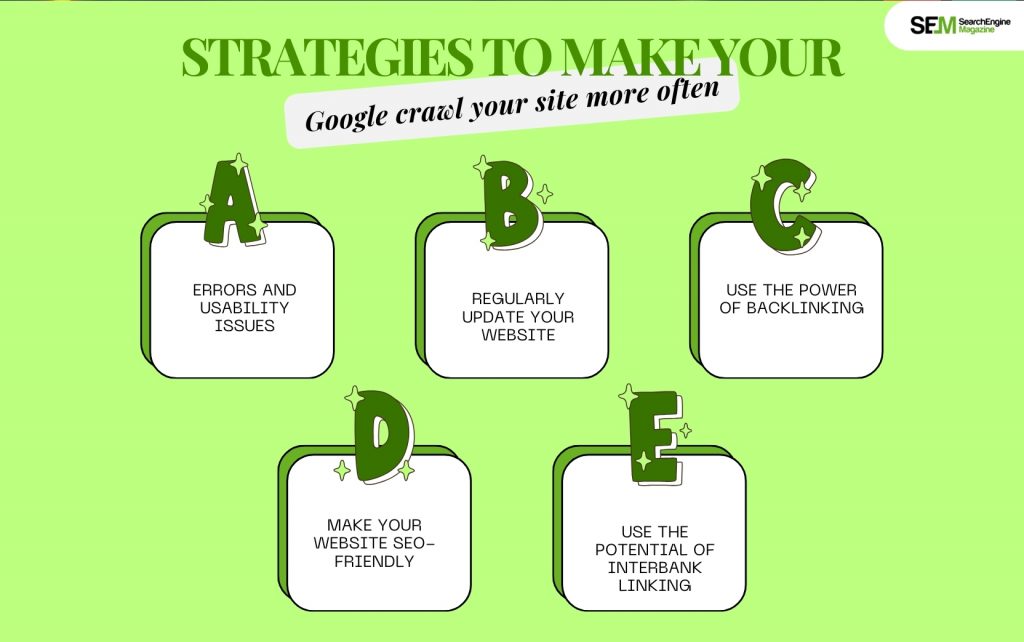How To Know If Someone Blocked You On iMessage? 5 Secret Hacks!
Apr 16, 2025

Apr 16, 2025

Apr 16, 2025

Apr 15, 2025

Apr 11, 2025

Apr 11, 2025

Apr 11, 2025

Apr 08, 2025

Mar 29, 2025
Sorry, but nothing matched your search "". Please try again with some different keywords.


When you manage a website, the first question that comes to mind is how often Google crawls a site and how to find out if it ever does.
These are the two crucial questions whenever you manage a website and aim to grow it and, most importantly, increase its traffic.
As we all know, crawling and indexing a site helps to serve users with more organic search. So, the real question is how to optimize the sites to gain more crawling.
Google crawls websites randomly from everywhere every three days to four weeks. The overall frequency of Google crawling your site depends on a few factors, which I will discuss in this article.
If you are a website owner and want to make better decisions, understanding the overall crawl rates and index times is equally important. While we need a proper idea about the ever-changing Google algorithm, crawlability and indexing frequency can help us improve our site performance.
In this article, I will help you understand the overall frequency of Google crawls, how they crawl, and how you can get Google to crawl your site.

Google crawls websites randomly from everywhere every three days to four weeks. The overall frequency of Google crawling your site depends on a few factors, which I will discuss in this article.
If you are a website owner and want to make better decisions, understanding the overall crawl rates and index times is equally important. For that, you need to know how often google crawlers update.
While we need a proper idea about the ever-changing Google algorithm, crawlability, and indexing frequency can help us improve our site performance.
In this article, I will help you understand the overall frequency of Google crawls, how they crawl, and how you can get Google to crawl your site.

If you manage a website, you have often asked yourself: How often does Google crawl a site? Well, there is no proper answer to it. That would be an absolute lie if I told you that Google Crawl would be your site within a day.
Google crawls URLs at different rates. Some pages get crawled and indexed overnight, while others have to wait several months for crawling and indexing.
The Google support team states that crawling and indexing depend highly on time. Both of them depend on various factors, such as:
Therefore, predicting when a URL can be crawled or indexed is not impossible. Sites that are a bit older and have an established domain are more likely to be crawled and indexed than new ones. Other factors, such as many backlinks and quality content, make them more eligible for crawling.
If your website is new, it can be difficult for you to get Google Crawl. You must focus on getting backlinks and consistently creating quality content. That’s the only way you can increase your chance of getting crawled.

We are talking about search engines here. In essence a crawler would be a piece of software that can browse the whole Internet. After that it will Discover many new and some existing web pages.
Experts call the crawler Google’s bot. However, the bot can naturally navigate through the website. Hence, it collects important information. If the site has relevant new information, it will go up on the search engine index.
The crawler will go from a single web page of your site to another. It will crawl through all available information on the website. It will also observe the website’s structure.
It will read the content using Natural Language Processing. After that, it will store the valuable information in the index. The result will be in the form of your search listing.

Billions of new pages and sites have been created on a daily basis. It becomes impossible for the crawlers to crawl every single site every day. Even Google needs to make good use of its tools wisely.
So, Google Crawlers follow a simple strategy. If they encounter a page with errors or a usability problem, they become less inclined to visit that specific site.
If Google bots have difficulty finding information on your page, their crawling frequency will be lower on the site. This applies to the content quality as well. If they need help accessing, reading, or finding relevancy in the content, they will crawl less on your site.
There is no proper formula for how often Google crawls a site, but there are simple strategies that can help you gain crawlers for your site.
In this section, I will help you with some useful tips that will help you boost crawlers for your site.
You must ensure that your site is free of errors or usability issues. Like other web admins, you can use Google Search Console to check for usability or connectivity errors.
Once you successfully fix the issues, you will be able to improve the crawlability of your sites easily.
If you continue to update your website on a regular basis, it will help Google to understand that your site is active. This will help the bots to learn more about your website.
You must ensure your sitemap is filled with fresh and relevant content to encourage bots to interact with new pages. They also crawl regularly in search of new information.
When you are managing a website, inbound links will allow you to increase your website visibility. In general, an inbound link guides Google from a known site to a completely new site through the links and collects new information.
Inbound links also inform Google that your content is genuine and has some authority that they should consider.
So, earn as many backlinks as you can to increase your visibility and help Google find your page for crawling and indexing.
When you are working on getting crawls, you will also need to focus on the technical aspects. Always remember a well-structured site plays a huge role in increasing the crawlability of your site.
So, focus on writing clear and relevant titles, enhancing the loading speed of your page and images, and using short URLs.
Internal linking is the next-gen thing that can help your website. It can help you interconnect one page with another, on your website. So, the crawler will jump from one of your contents to another. But it will spend more time on your website itself.
You can add valuable internal links using sites like LinkWhisper.
Yes, you can definitely ask Google to crawl your website, but that doesn’t mean they will. As a web admin, you can submit your site map to the Google Search Console. This way, you encourage the crawlers to crawl your site map.
Usually, the sitemap helps lay out all the content on your website to guide the bots. The bots then start working to find which information is relevant, which one you last updated, and how often you create content for your website.
Once you learn how often does Google crawl a site is, the next thing that may come to your mind is whether you can ever submit a request to Google Crawl.
Well, the answer is yes! You can. There are various instances when web admins make changes to their websites. This can be due to changes in Google’s algorithm or user intent. Once you make the changes accordingly, you can request Search Console for a URL inspection.
This encourages the bots to crawl your page again and increases the speed of discovering any new pages that you have added. Thus, you can easily submit a page to Google Crawl.
If your domain has already been claimed, you can easily request up to 10 crawls every day.

Google offers a free Search Console as the ultimate power web admins. As someone who manages a website, you can use the Google Search Console to examine your website’s performance.
Other than that, Google Console also provides you with the option to view the overall crawl status. For example, you can easily find out when, as the last time, Google bots crawled your website.
And there’s an easy way to find out if Google crawlers have crawled your site or not. Here’s how:
Once you click on coverage, the Console will provide you with detailed data about how many times Google bots have crawled your site. You can find the last crawl data along with the date and time. The data also shows the type of bot that appears for crawling. How long does it take for Google to crawl a site?
But you can still try to make improvements like every other web admin to get their websites crawled.
Google’s main objective is to serve websites with better-quality information and a better user experience.
You can work on optimizing the site’s structure and creating exceptional content that properly aligns with user intent.
As for Google crawling, it usually takes a few days or even a few weeks. So, I would suggest you be patient with your website and properly monitor the progress. You can use an Index Status report or a URL inspection tool for the measurements.
The entire web world is more like a growing library full of information. So, Google crawls the sites to find data about the websites and then files them in the library through indexing.
Once Google is done with indexing, it is fully ready to get added for ranking on the search engine result pages.
There is a low chance that you will follow a proper guidebook on how to get your website noticed by others. You may always need a better guide on how your website is crawled and indexed.
The article has been helpful for you to get an idea about how often does Google crawl a site and how you can improve your website crawlability.
Always remember that if you request a crawl, it will occur instantly. You have to wait patiently for the result.
Read Also:
Barsha Bhattacharya is a senior content writing executive. As a marketing enthusiast and professional for the past 4 years, writing is new to Barsha. And she is loving every bit of it. Her niches are marketing, lifestyle, wellness, travel and entertainment. Apart from writing, Barsha loves to travel, binge-watch, research conspiracy theories, Instagram and overthink.
View all Posts
How To Know If Someone Blocked You On iMessag...
Apr 16, 2025
7 Website Design Mistakes That Are Hurting Yo...
Apr 16, 2025
Programmable Dynamic SEO for Location-Based P...
Apr 15, 2025
Google Boba Game: How To Play This Fun Game B...
Apr 11, 2025
Which Is The Best Video Search Engine Of 2025...
Apr 11, 2025

